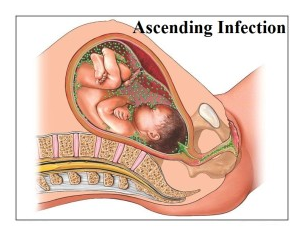Aug 25, 2016 · Group B Streptococcus(GBS) is the most common cause of life-threatening infections in newborns; thus, GBS is the primary focus of any discussion about infections and pregnancy.
Group B streptococcus infection, also known as Group B streptococcal disease, is the infection caused by the bacterium Streptococcus agalactiae (S. agalactiae) (also known as group B streptococcus or GBS).



INTRODUCTION. Group B streptococcus (GBS) is a bacterium that can cause serious infections in pregnant women and newborn babies. GBS is one of many types of streptococcal bacteria, sometimes called “strep.”

Group B Streptococcus (group B strep) is a type of bacteria that causes illness in people of all ages. Also known as GBS, group B strep disease is the most common cause of severe infections in newborns that can be deadly, but it can be prevented.
Group B Strep Infection is a bacterial infection that can be found in a woman’s vagina or rectum and passed to the baby during delivery.
Invasive group B streptococcus (GBS, Streptococcus agalactiae) infection in adults is being identified with increased frequency.The infection originates from soft-tissue infections, bacteremia and pneumonia. 1 Those with reduced immunity from diabetes or cancer have a 10- to 15-fold increased rate of GBS infection. 1 In adults, GBS infection
Streptococcus Agalaictiae. S. agalactiae (alternatively known as group B streptococcus) is an important pathogen, causing severe infections amongst the immunocompromized and neonates.

Background Group B streptococcal disease is one of the most common infections in the first week after birth. In 2002, national guidelines recommended universal late antenatal screening of pregnant women for colonization with group B streptococcus to identify candidates for intrapartum chemoprophylaxis.


Group B streptococcus — Overview covers definition, symptoms, treatment of this common bacterium.

Understanding Group B Streptococcus What is Group B Strep? Group B Streptococcus (GBS), or beta strep, is a normal bacterium commonly found in the intestinal tract along with other healthy bacteria.

